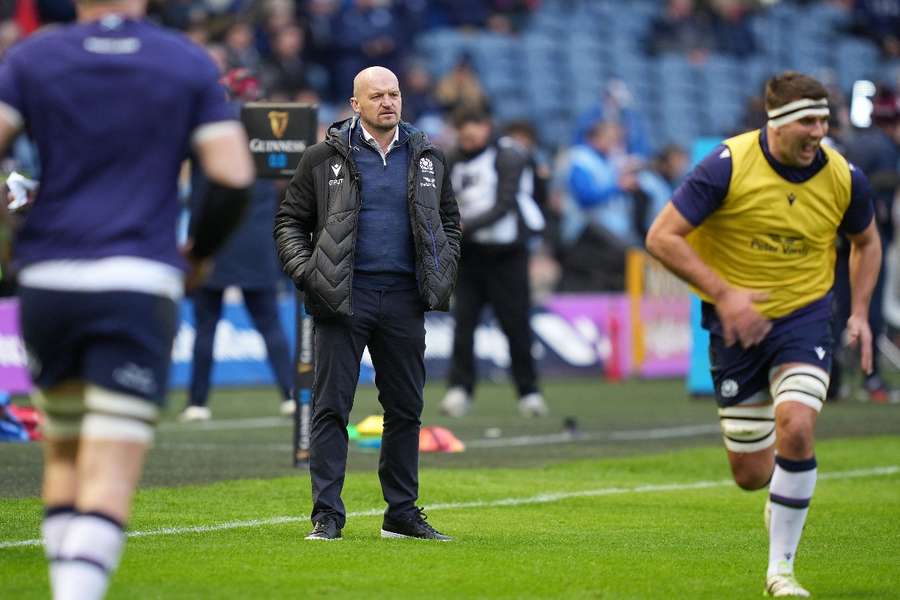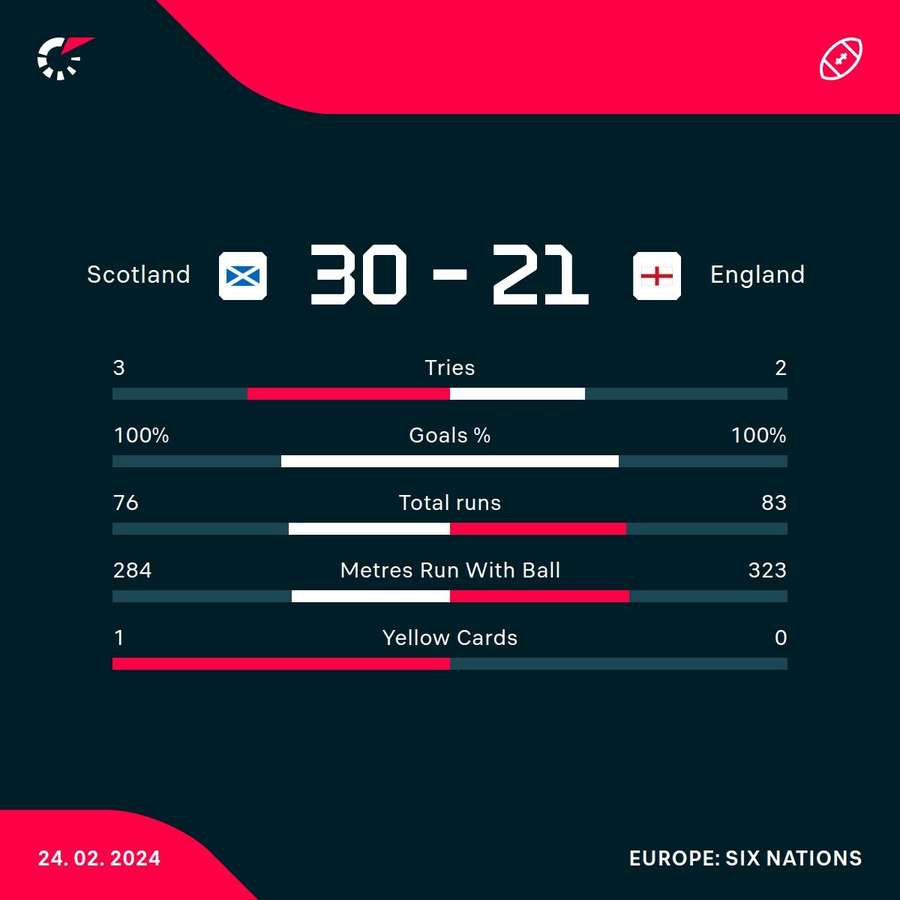Scotland boss Townsend wary of 'not proven' hi-tech mouthguards

Under the World Rugby rollout, to be used in all elite competitions this year, players wear mouthguards fitted with sensors that measure "head acceleration events".
Matchday medical staff monitor the mouthguards for alerts and can remove players from the game for an HIA.
Scotland are believed to be the only Six Nations team to have been affected so far, with hooker George Turner going off for an HIA in the first half against France a fortnight ago, while fellow front-row forward Zander Fagerson - clearly bemused as he left the pitch - exited in the seventh minute of Saturday's win over England.
Both players were cleared to return in their respective games.
Asked after Scotland's 30-21 Calcutta Cup triumph at Murrayfield if Fagerson's temporary exit had been triggered by a mouthguard reading, Townsend replied: "Yes, it was and I saw the tackle again, just a normal tackle.
"I think we have to really watch what we're doing here by trusting technology that's not been proven.

"What we've been doing over the last few years is making sure that any symptoms that are seen, by a number of people, can flag up whether someone goes off for an HIA.
"Zander was taken off for 10 minutes after what looked like a normal tackle but there was a spike alert from the mouthguard."
'More work to do'
Canterbury Crusaders captain Scott Barrett described the mandatory safety initiative as "a step too far" after his team were affected in their 33-29 loss to rival New Zealand side Waikato Chiefs on Friday.
Townsend, himself a former Scotland international, added: "I know in Super Rugby there were a couple of alerts and players were saying 'there's nothing wrong here, I've just made a tackle', so we've got to watch that because you don't want to be taking our best players off the field for 10 minutes if there are no issues around concussion.
"We want to protect our players, that's for certain, but there's a bit more work to do before this technology is correct."
Townsend urged officials to learn from the two incidents involving Scotland players, saying of the new technology: "We need to make sure it's as close to accurate as possible. That's what we want.
"We have lots of eyes watching and players are now very good at saying 'I've had a head injury here, I have to go off'.
"I think we just need to do a bit more work here before we move on."

